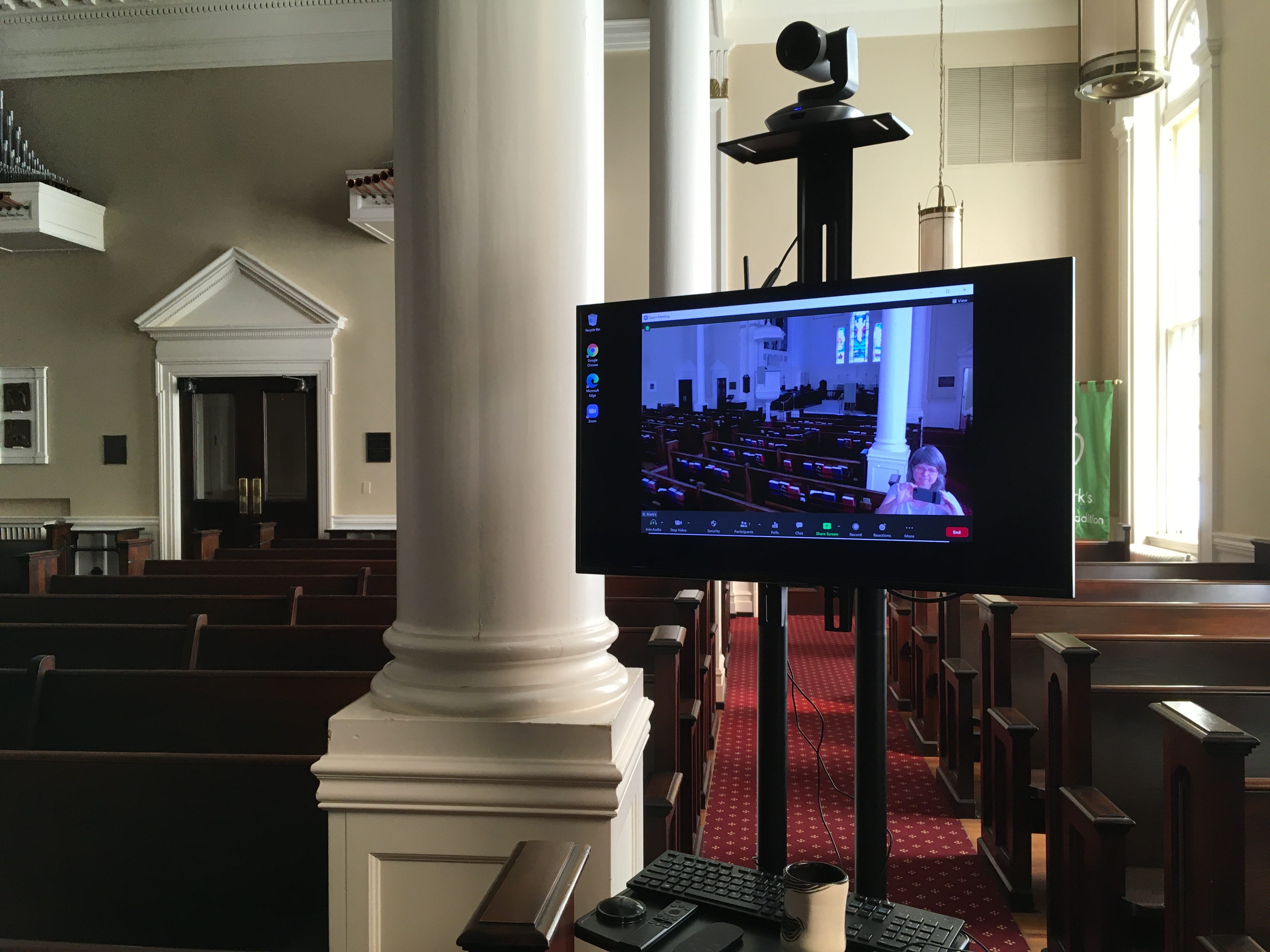|
Stewardship Month: October 17th 2021 - Tara Peyton-Burgess
Good morning! My name is Tara Peyton-Burgess.
I was so excited when Howard Pugh called and asked me if I’d share my
story about what brought me to St. Mark’s. I have shared my love of this
church with my family and many friends, and I am grateful to be
standing here to share it with each of you.
When we moved to the Museum District five years ago, one of my
priorities was to find an Episcopal church to attend. My family and I
were members of Christ and Grace Episcopal Church in Petersburg for
20 years. While it was difficult to change our membership, my mission
was to find a church close to our new home.
The first service I attended was at an Episcopal church where the
Rector of Christ and Grace had been a former Assistant Rector. This
church had a very large congregation, and I just felt lost. I knew I’d have
to seek out small group activities to become a part of things. While the
church itself and the music were beautiful, I didn’t feel it was a good fit.
The following Sunday I decided to attend St. Mark’s. I remember it
being a beautiful morning, so I walked from our house. As I made my
way through the parking lot, at least 5 people greeted me, before I’d
even stepped through the front doors. Upon entering, I observed lots of
conversation amongst the parishioners, which was something I was not
accustomed to seeing take place prior to the service. I loved seeing this
interaction and witnessed it again during the 5 minute Peace.
Something that was definitely a first for me!
As I sat down before the service began, I started reading the mission
statement “Love is Our Tradition” that was printed on the front of the
bulletin.
Three of the parts aligned with most church’s beliefs:
To love God
To serve the community and
to love your faith.
It was the fourth one that jumped out at me:
Our love for God compels us to love and welcome others with open
arms ----- regardless of age, ethnicity, sexual orientation or social
status.
As I read these words, I knew God had led me to the right place.
Growing up in many different churches, I had never seen the words
actually written in a bulletin of how Jesus wants us to treat one
another. I was ELATED!
I continue to share my joy of being a member of St. Mark’s with my
friends and family. I’ve posted my feelings several times on Facebook. I
scrolled back yesterday and found a post from August of 2017. I had
made a collage with a photo of the church’s steeple, our flag which
states, “Love is Our Tradition”, a photo of two children of different
races loving one another and the fourth part of our mission statement
that I read earlier.
These are the hash tags that were under my collage:
#lovenothate #weareallGodschildren #loveourchurch
#keepingthefaithinhumanity #beautifulviewonmywalk
#GodBlessAmerica
I am so blessed to be a member of Saint Mark’s. How awesome is it to
attend a church that loves and accepts EVERYONE. Thank you for
listening to my story. May God bless each of you.
|

